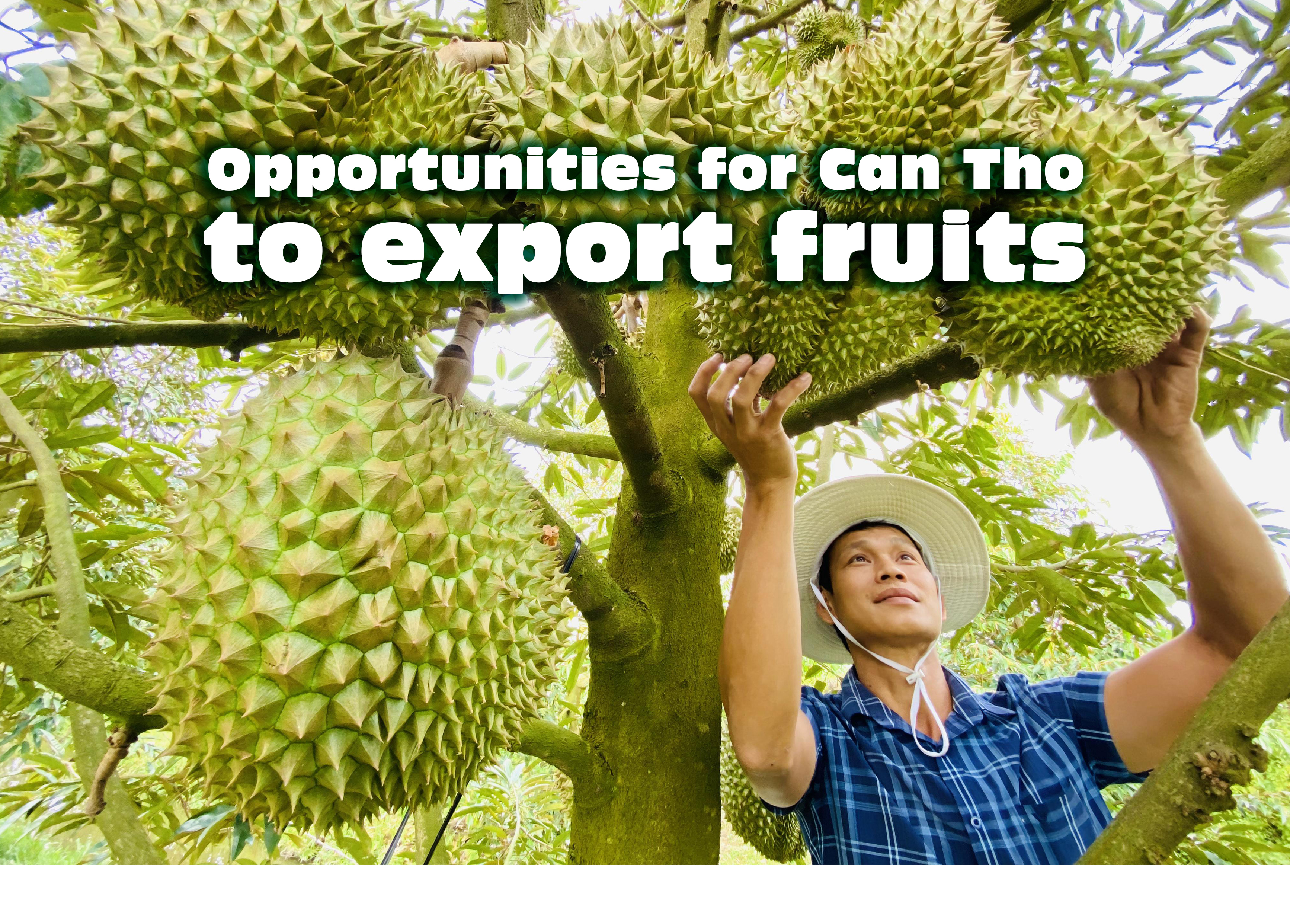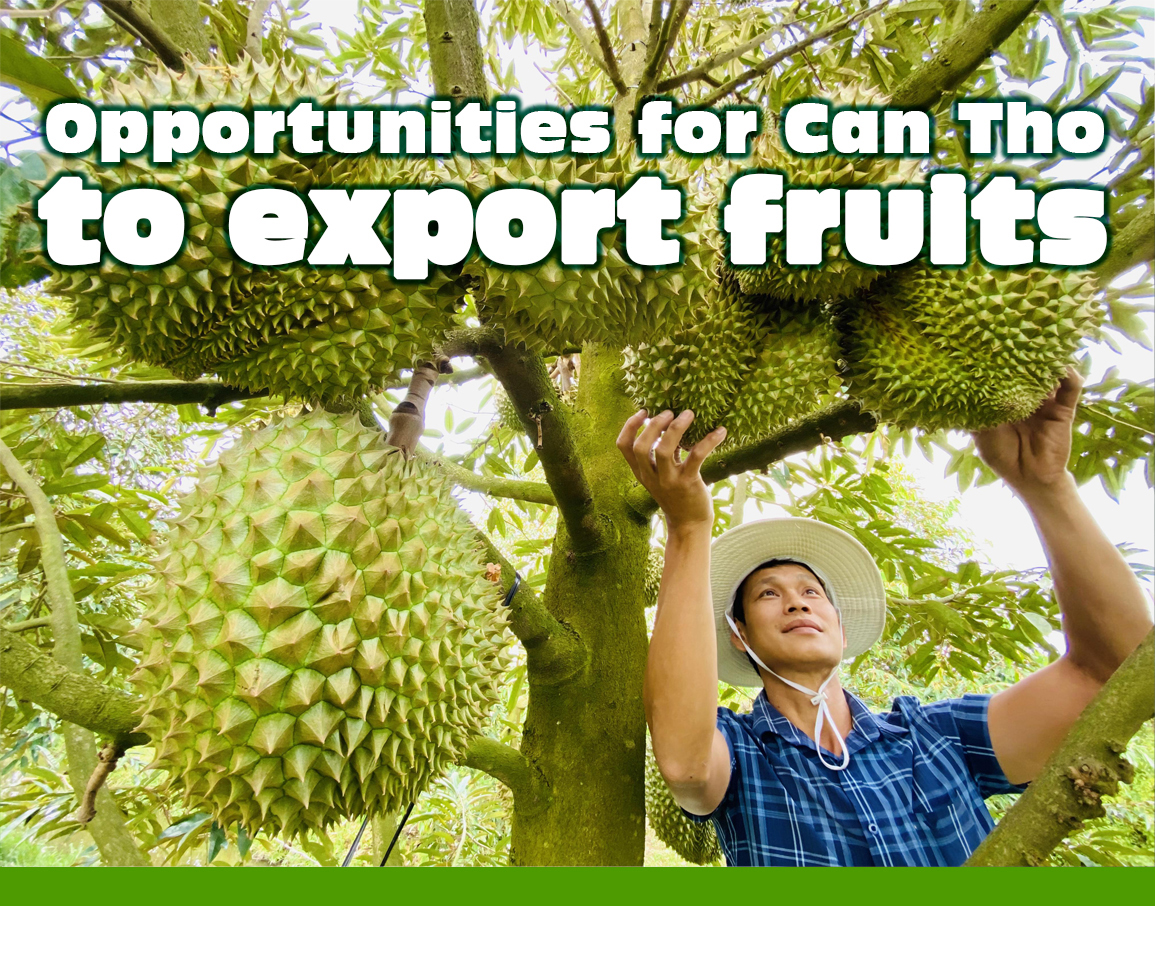Vietnam's fruit and vegetable exports have grown enormously in recent years. In the first 6 months of 2023, the country's fruit and vegetable exports are estimated to reach US$ 2.8 billion, an increase of 64.2% over the same period last year. The Ministry of Agriculture and Rural Development commented that the potential for exporting vegetables and fruit products is huge because demand worldwide is very high. However, countries are also erecting many technical barriers to food safety, forcing export businesses to comply to produce fruit for sustainable export.

Can Tho City is one of the localities in the Mekong Delta, with fruit-growing areas increasing sharply in recent years and reaching nearly 25,000 hectares. Over the years, Can Tho City has focused on developing concentrated fruit production areas and building model orchards as a locality with strengths in fruit trees.
According to the Department of Agriculture and Rural Development of Can Tho City, 2018, the City had 18,291 hectares of fruit trees. By 2019, it reached 20,125 hectares. In 2020, it reached 21,623 hectares; in 2021, it reached 23,416 hectares. By the end of 2022, the area planted with fruit trees in Can Tho City reached 24,589 hectares, with a harvest of 194,507 tons. Fruit trees grown in the City are diverse, with many delicious and specialty fruits. Among them, the largest planted area is mangoes, with 3,374 hectares, about 2,965 hectares of durians, 2,611 hectares of longan, 1,962 hectares of jackfruit, 1,791 hectares of plums, 1,482 hectares of star apples, 1,382 hectares of lemons, 1,140 hectares of bananas, 1,068 hectares of oranges, 744 hectares of grapefruit, 392 hectares of rambutan, 314 hectares of guava, 300 hectares of mangosteen. In addition, the area planted with coconut is 1,534 hectares, and other crops are 4,241 hectares.
Many delicious and specialty fruit orchards have recently helped farmers earn a very high income, from VND 200-800 million/ha/year. Farmers have also built many fruit tree growing models associated with ecotourism development, with profits 1.5-2 times higher than specialized fruit tree cultivation. However, fruit tree production in the city still has many concerns about future product output. The reason is that farmers still grow fruit trees to follow "price" and "the crowd, lacking business purchasing contracts and no close connection between production, processing, and consumption. In particular, farmers continue to expand their planting areas very quickly for many types of fruit trees, especially durian trees, because durians sell at high prices.
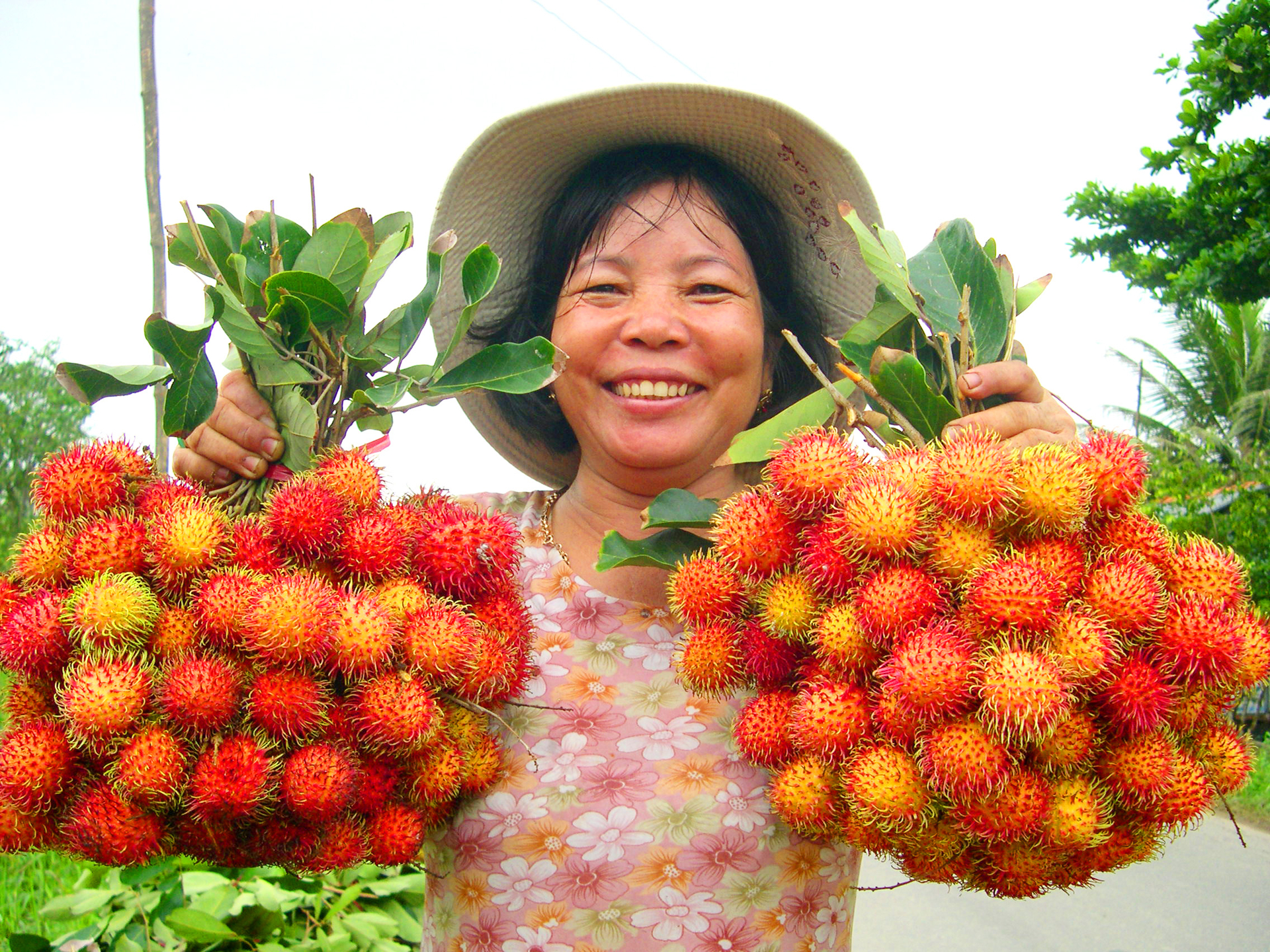
Phong Dien district alone is the "capital" of the region specializing in concentrated fruit tree production, currently with more than 8,789 hectares, with many types of high economic value such as durian, Ha Chau strawberry, star apple, Ido longan, and durian. In particular, seedless lemons, mangosteens, and honey oranges... are well-known and consumed in domestic and foreign markets.
Huyện Phong Ðiền quan tâm, chú trọng việc xây dựng các mô hình sản xuất theo VietGAP and Global GAP processes to help increase productivity, quality, and output for agricultural products. The district is implementing 9 production models according to the VietGAP process, including 8 VietGAP models on fruit trees. Up to now, the whole district has 23 production models meeting VietGAP standards, with a total area of 286 hectares, with 422 participating households; 1 Global GAP model of growing star apple trees in Truong Long commune, an area of 16.1 hectares with 12 participating households. The district also developed codes for fruit growing areas in the area, Supporting participation in the program "One commune, one product"...
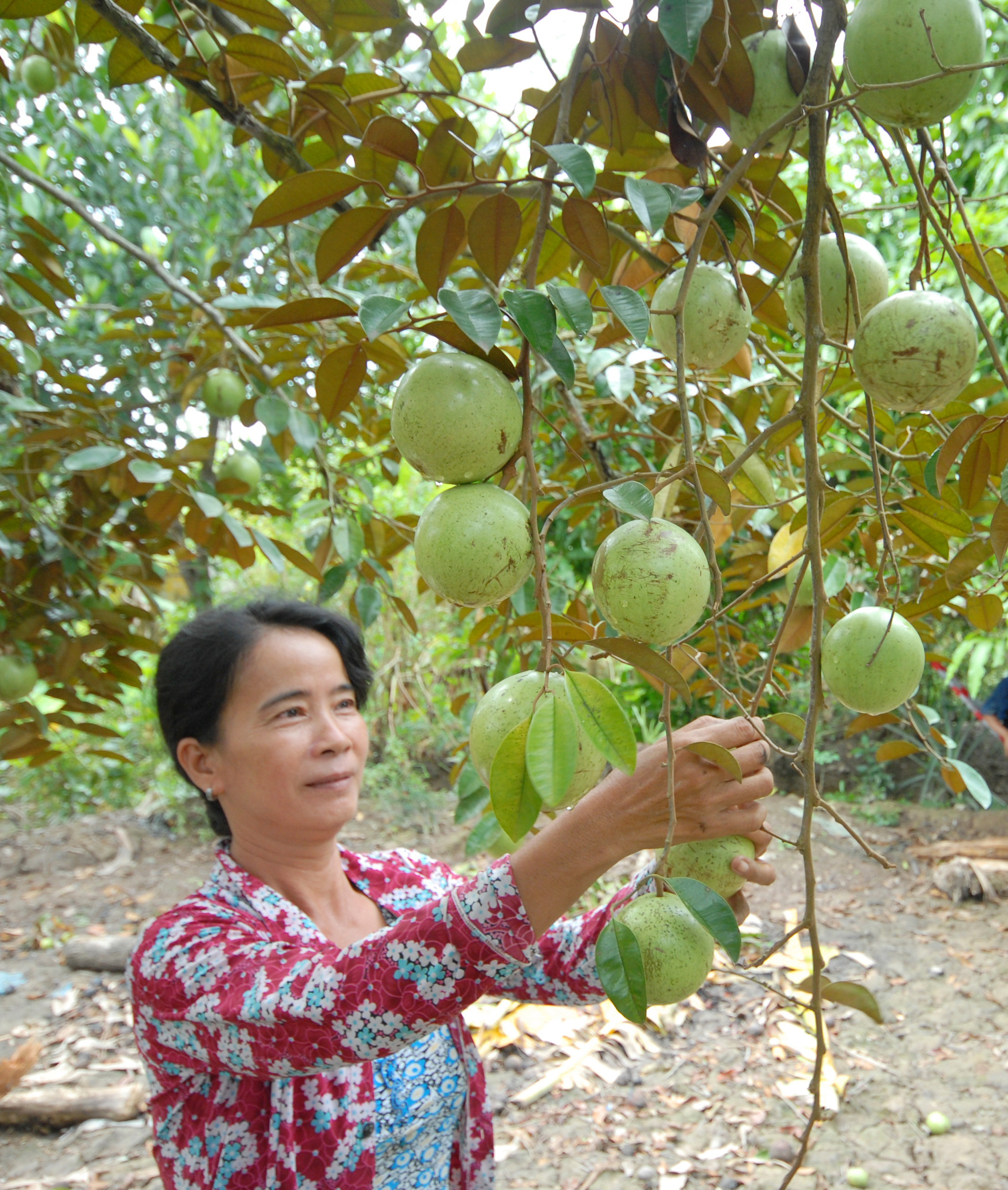
Mr. Nguyen Van Thang, Vice Chairman of Phong Dien District People's Committee, said: To keep up with the e-commerce trend, Phong Dien promotes the development of the agricultural digital economy, helping farmers, agricultural households, and cooperatives, farmer groups promotes and introduces through e-commerce platforms. This is also an intermediary bridge to bring Phong Dien's specialty fruits to domestic and foreign markets. The district also organizes festivals and fairs to promote and introduce high-quality, specialty fruits Phong Dien farmers produce. Also, it helps farmers have conditions to access the market, consume agricultural products, increase income, and attract visitors to visit and enjoy Phong Dien fruits.…
Mr. Nguyen Van Luc in Nhon Binh hamlet, Nhon Ai commune, Phong Dien district, said: "This year's durian crop has harvested 4 tons, the tree is 7 years old, with a yield of more than 3 tons/ton and sold. The price is from VND 50,000-55,000/kg. I got a profit of about VND 800 million/ha. This year, most durian farmers had a successful harvest and sold at high prices thanks to increased durian exports to China. However, because farmers in many localities in the country are promoting durian cultivation, I am also worried about the output price of durian fruit in the coming years."
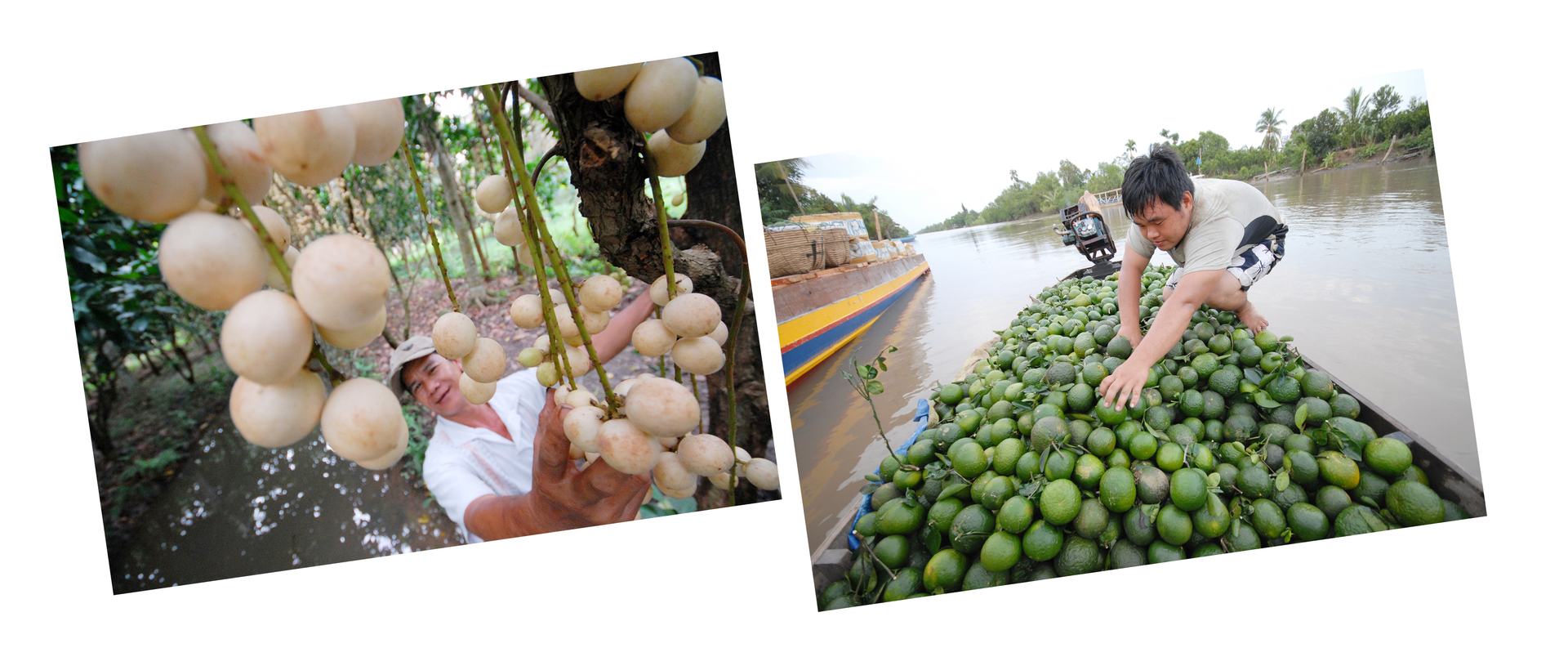

There needs to be a connection to support to form cooperative groups and cooperatives to produce fruit in large quantities safely and according to the same process with a guide, aiming at the export market.
According to Mr. Tran Thai Nghiem, Deputy Director of the Department of Agriculture and Rural Development of Can Tho City, nowadays, consumers are very concerned about their health. Hence, buying safe products is no longer strange. Many farmers in Can Tho have produced VietGAP and GlobalGAP-certified products. However, there are some units that can be sold to businesses at attractive prices, but there are some that can be sold at regular prices. This depends on the manufacturing organizations. The agricultural industry will support farmers when products produced according to VietGAP or GlobalGAP will be linked with cooperatives and businesses. After the first round of support, when the VietGAP certification support period expires, GlobalGAP will, in effect, spend its own money to re-certify, which is the basis to help gardeners sell products to businesses at high prices. In addition, farmers need to link production and consumption together to ensure the quantity of goods supplied meets the quality desired by customers.
Mr. Tran Thai Nghiem also said that exporting goods to the US market is difficult. In recent years, Vietnam has also been opened by the US and China to export many types of fruits grown in the Mekong Delta. This shows that Vietnam's agricultural exports are on the rise. When exporting, higher quality and safety requirements are required. Notably, the product must be delicious, safe, in large quantity, and traceable to its origin. Vietnamese businesses that want to export to the US must have an American partner to register. Therefore, there needs to be a connection to support forming cooperative groups and cooperatives to have large output and produce according to the same process with guidance and guidance to meet the import requirements for export and sale to the foreign market.
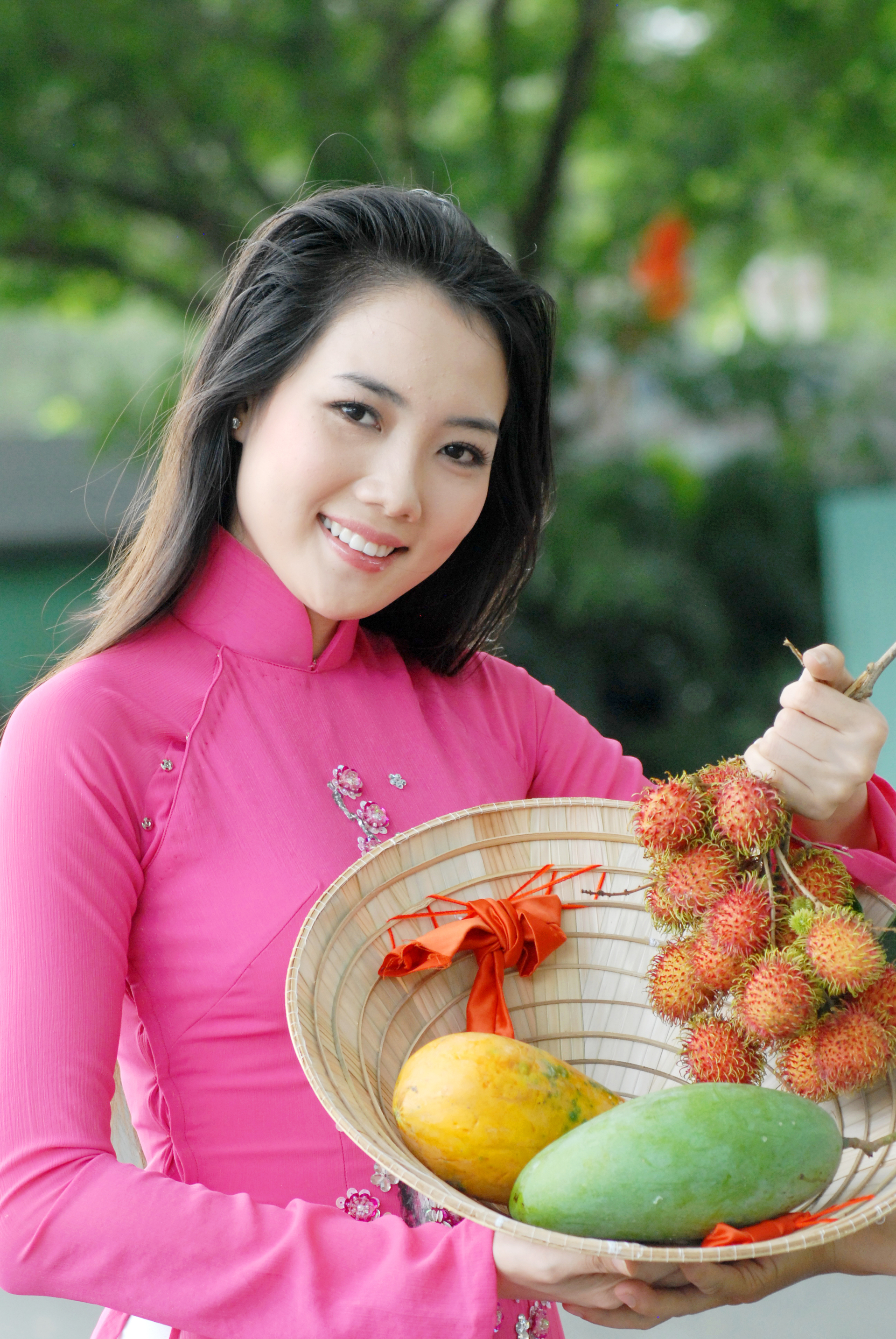
Prof. Dr. Nguyen Bao Ve, Senior Lecturer (Can Tho University), said that according to VietGAP or BlobalGAP standards, both must satisfy three safety factors: Safety for farmers and not affecting the environment. Environmental and consumer safety will help increase the reputation of farmers' products, and consumers will trust and not turn away from the product. However, when safe production reaches the buyer, the product can also be distorted, affecting the farmer's reputation. Therefore, people need to cooperate in producing high-quality fruit.
Consumers feel the internal quality through the shape of grapefruit, dragon fruit, mango, etc... The interior quality will be affected if plants are grown with too much nitrogen fertilizer and use many growth stimulants to produce large fruits. Therefore, paying attention to how to fertilize and use growth stimulants is necessary. If you fertilize less, the yield will be lower. If you fertilize more, the quality will decrease, so you must fertilize moderately with nitrogen and not stimulate the fruit with growth regulators to increase weight in the final stages. The interior quality is determined by the green leaves that receive sunlight to create sugar passed through the grapefruit to make sour, sweet, or peanut grapefruit... Fruit trees create drought to stimulate flowering. If you want concentrated flowering without chemicals, you can use the watering method, limiting the use of chemicals that affect the soil.
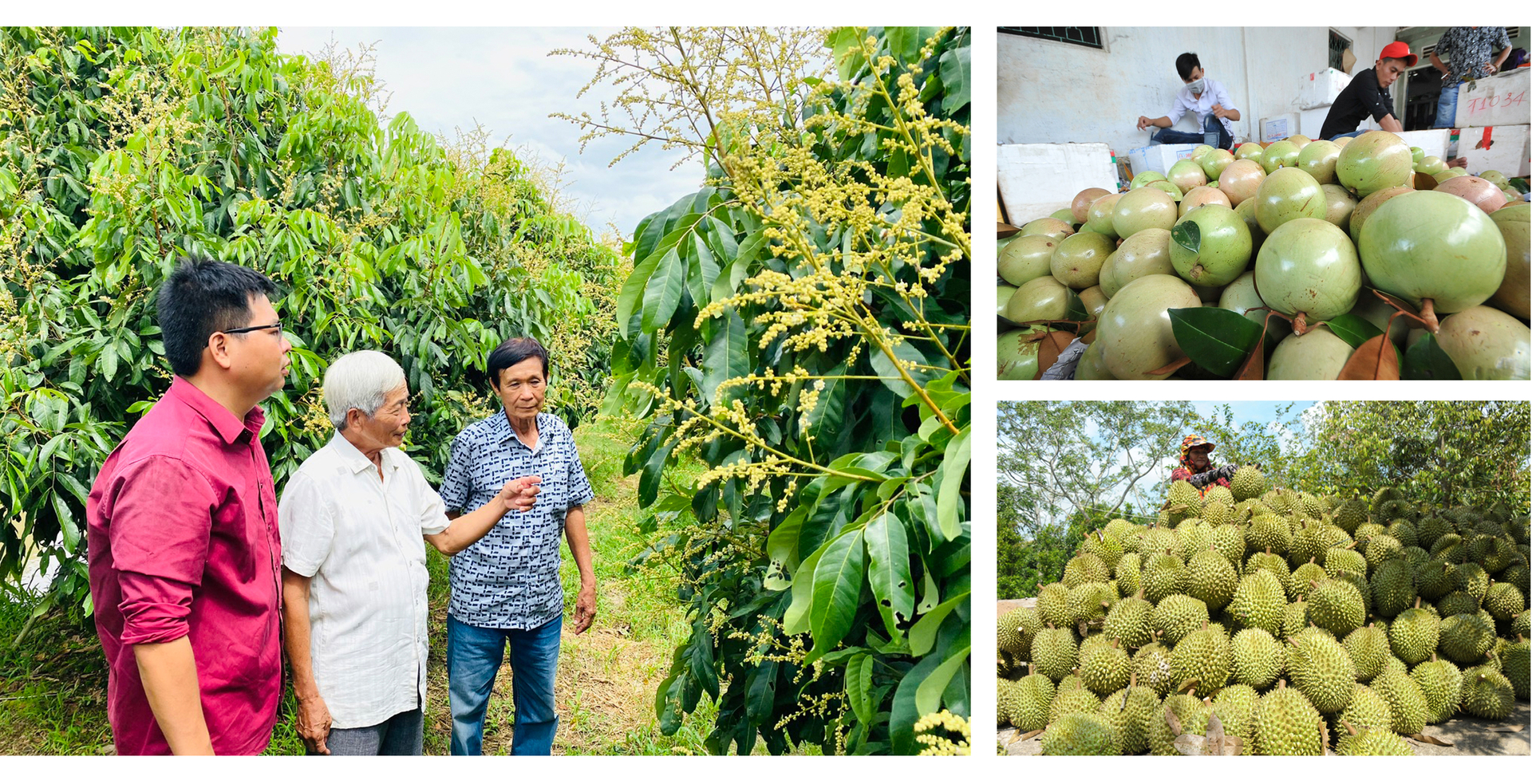

Currently, Can Tho City has been granted 46 Production unit codes for 37 growing areas, with an area of 602 hectares, and 7 packing house codes for 5 packaging facilities.
To stabilize output for fruit trees, Can Tho City supports and encourages farmers to standardize production to meet good standards and quality to develop exports. At the same time, it promotes farmers to apply scientific and technical advances and link with businesses and stakeholders in the commodity chain to improve fruit production and business efficiency.
In recent years, the area of fruit trees in Can Tho has continuously increased, making an essential contribution to the transformation of agricultural production structure to increase value and income for farmers in the same area. The city has nearly 25 thousand hectares of fruit trees, including many types of fruit, with the potential to promote export and bring high value. Can Tho grows a variety of delicious and specialty fruit trees, many of which are produced in relatively large areas. Through the first 6 months of 2023, fruit output in Can Tho City reached nearly 80 thousand tons.
Many fruits grown in the city, such as bananas, jackfruit, lemons, mangoes, longans, durian, and star apple... are exported to many countries and territories worldwide, including difficult markets: Japan, Korea, the US, and the EU. However, the number of orchard areas in the city that are granted Production unit codes and have certificates that meet good agricultural practice standards, such as VietGAP and Global GAP... is still relatively small. Many countries around the world set stricter requirements on standards and quality for fruits imported into their countries, especially the need to have Production unit codes and packaging facility codes to Guarantee traceability.
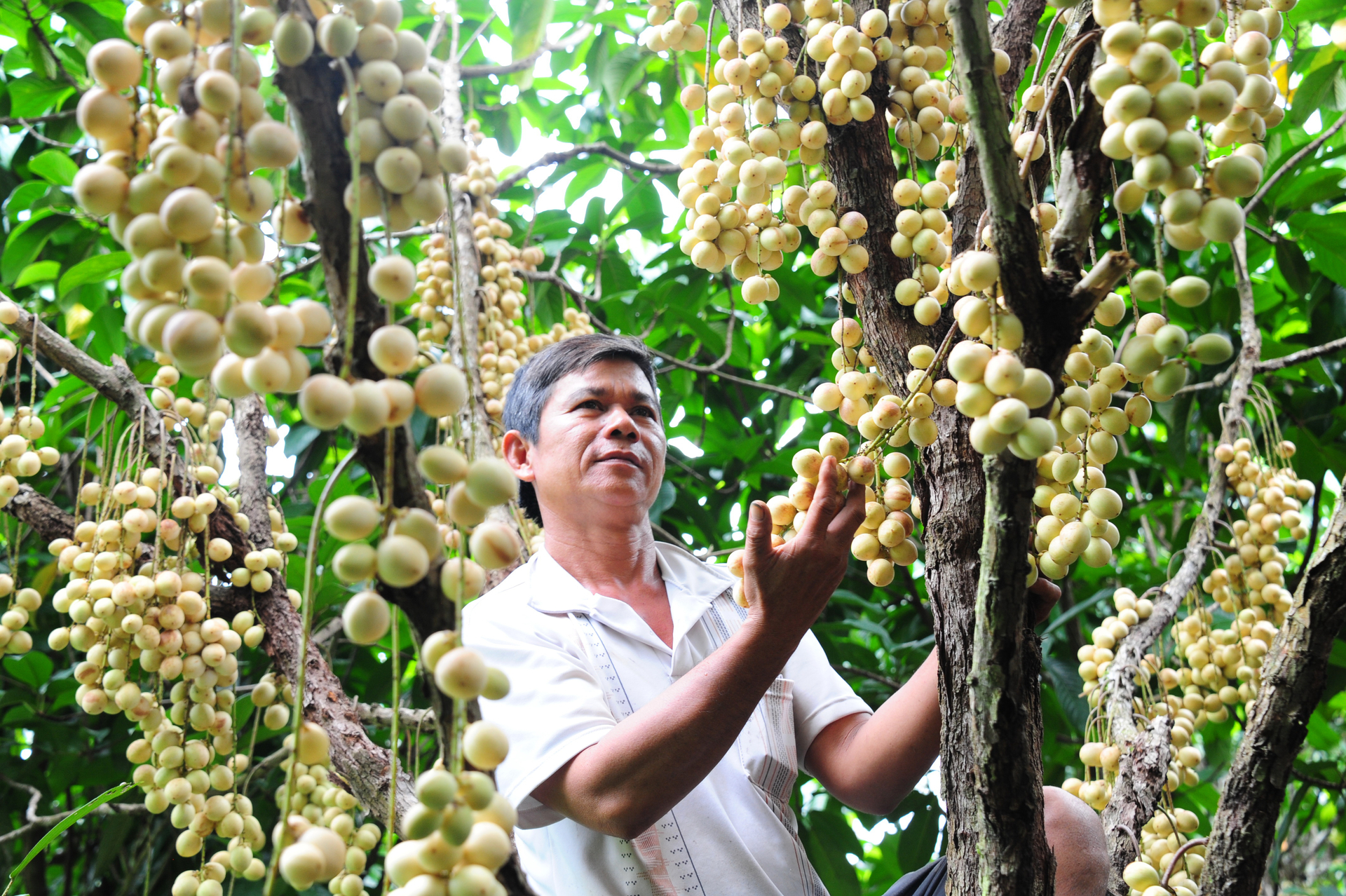
Therefore, for Can Tho's Fruit to maintain and expand the export market, farmers and cooperatives, fruit production, and business enterprises in Can Tho must promptly standardize production according to market demand requirements.
According to the Department of Crop Production and Plant Protection of Can Tho City, the city currently produces 477 hectares of fruit trees according to VietGAP and GlobalGAP standards. From the beginning of 2023 until now, the authorities have issued and re-issued 17 Production unit codes with a total area of 150 hectares. Currently, cooperatives, farmer households, and fruit production and business enterprises in the city have been granted 52 codes for 37 growing areas, with a total area of more than 602 hectares, and 7 codes for 5 packaging facilities to serve export markets: US, Australia, China, Korea, and EU.
To support farmers in standardizing production according to export market requirements, Can Tho City's agricultural sector has promoted propaganda activities, technical training and regularly organizes updates and information dissemination and knowledge about production and markets, especially requirements on product standards and quality of countries; Support farmers in building and replicating effective fruit-growing models, applying production according to good agricultural practice standards associated with building Production unit codes; Mobilize farmers to link up and form cooperatives and concentrated specialized fruit growing areas to facilitate the management, organize production according to standards, and connect with businesses.
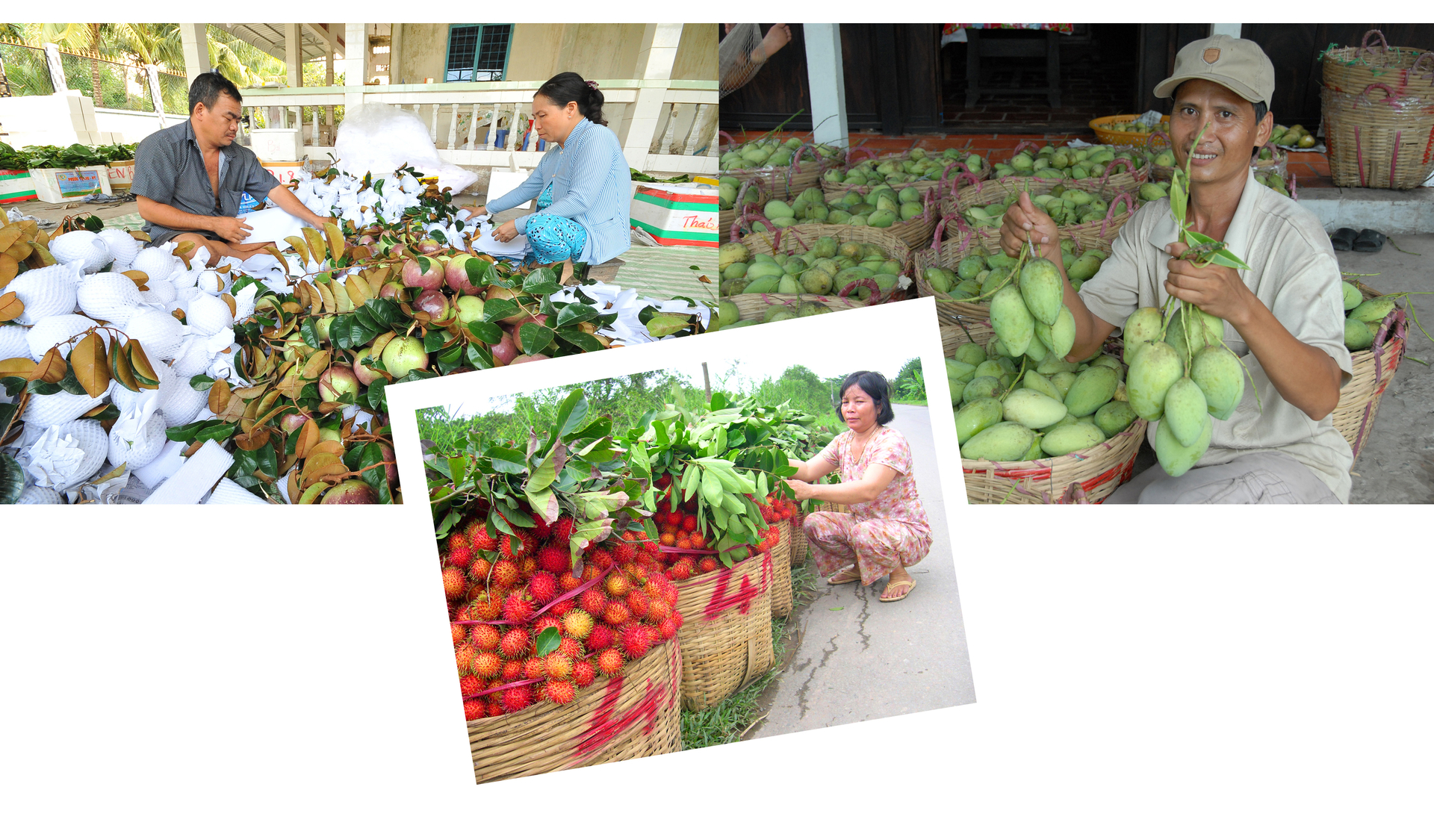
Ms. Tran Thi Kim Thuy, Deputy Director of the Department of Crop Production and Plant Protection of Can Tho City, said: Currently, the management and issuance of Production unit codes for fruit trees and other local crops still face many difficulties. Notably, the area of fruit trees is still fragmented and planted with many types of crops. On average, each household has an area of about 5-8 square meters, while according to area code regulations, the minimum area for fruit trees is 10 hectares. Farmers still farm according to old practices, are limited in applying advanced technical measures, and keep incomplete information in farming log books.
To properly manage Production unit codes and packaging facilities, Mr. Tran Thai Nghiem, Deputy Director of the Department of Agriculture and Rural Development of Can Tho City, requested the Department of Crop Production and Plant Protection and specialized agencies under the department and branches. Local authorities must check and monitor issued codes and review requests for new codes at localities. Timely support people and businesses in removing difficulties and overcoming limitations. For farmers and cooperatives, it is necessary to register Production unit codes to facilitate product output proactively...
According to Prof. Dr. Nguyen Bao Ve, the bottom line is that consumers are willing to spend large amounts of money to eat safe products, but they do not know whether the product is safe or not. Therefore, people need to note that many gardeners produce fruits with barcodes and put them in supermarkets. Consumers who want to know where the fruit comes from must use their phone to trace the origin.
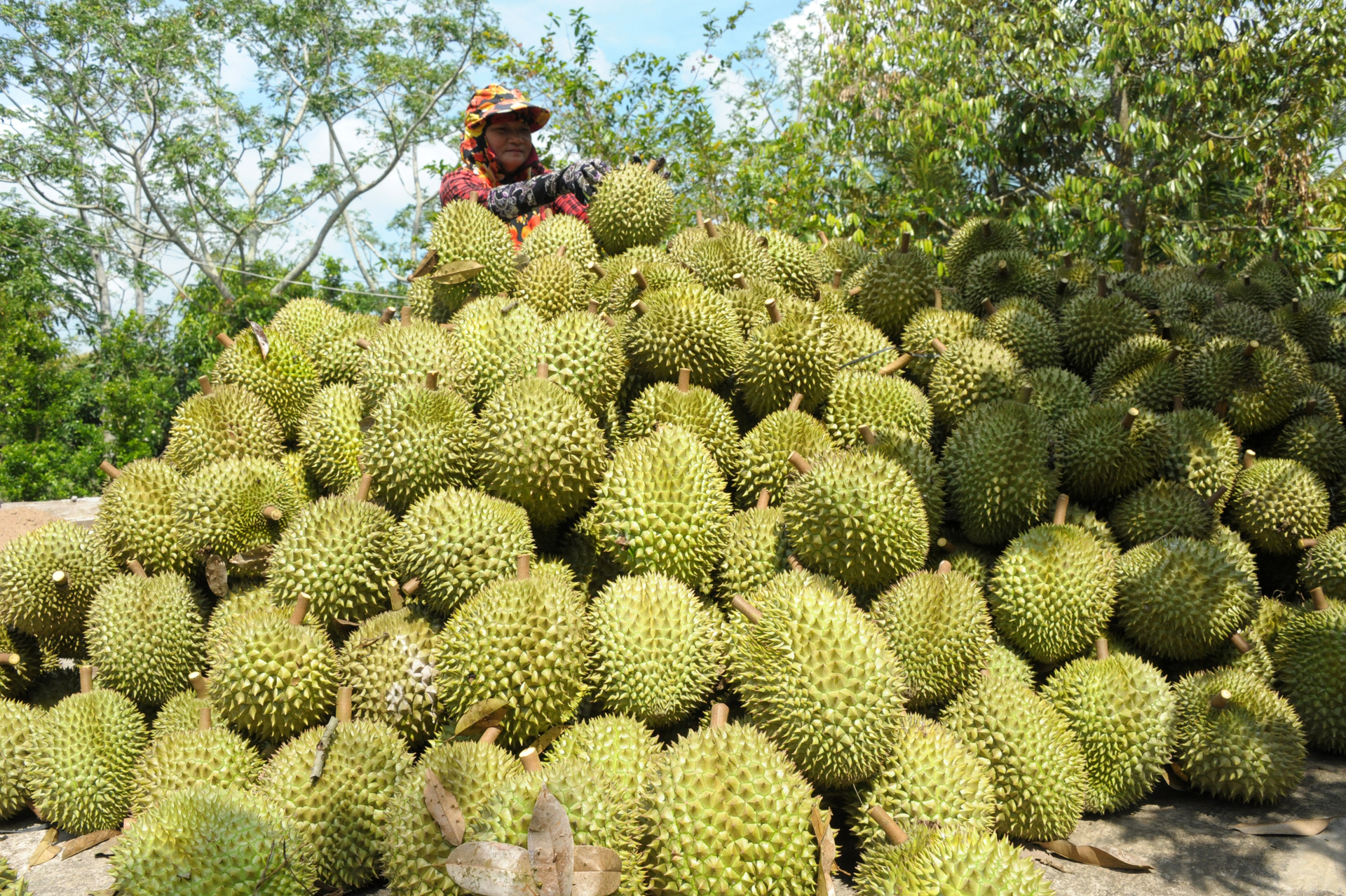

In early March, Can Tho City Department of Agriculture and Rural Development coordinated with Ngoc Minh Lang Son Import-Export Co., Ltd. to organize a ceremony to export the first durian shipment of nearly 20 tons to the Chinese market according to the Protocol and signed between the Ministry of Agriculture and Rural Development and the General Department of Customs of China in Can Tho City.
Mr. Tran Thai Nghiem, Deputy Director of the Department of Agriculture and Rural Development of Can Tho City, said: After 4 years of negotiations, on July 11, 2022, Minister of Agriculture and Rural Development Le Minh Hoan signed the Protocol with the General Administration of Customs of China on official durian export to China. Vietnamese durians are officially exported to China, which means that the value of durians will increase, and the market will be more stable and sustainable. In Can Tho, with the support of the agricultural sector, durian purchasing and exporting companies and units and farmers in cooperatives and cooperative groups have begun to build growing areas, complying with the requirements and the criteria specified in the Protocol. And after many days of hard and responsible work, the farmers have come to reap the sweet rewards.
"Exporting durians in Can Tho City to the Chinese market is an important turning point, not only for the durian industry but also creates motivation for farmers to cooperate in production and create more agricultural high-value products for export," Mr. Nghiem said excitedly.
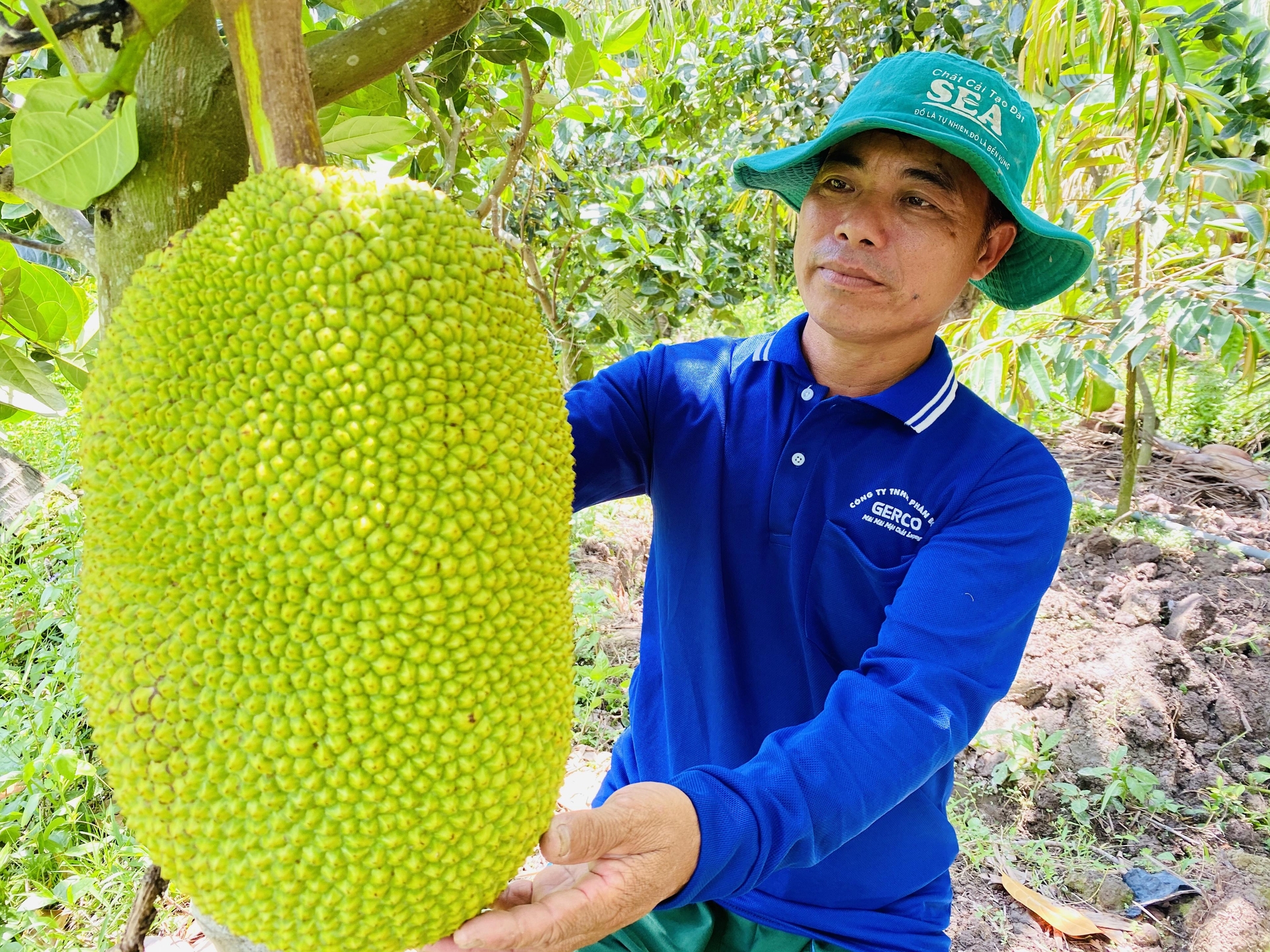
Mr. Nguyen Ngoc He, Vice Chairman of Can Tho City People's Committee, said: For the first time, Can Tho officially exported nearly 20 tons of durian variety Ri6 to the billion-people market, according to the Protocol signed between the Ministry of Agriculture and Rural Development and the General Department of Agriculture. China Customs Department. The people of Can Tho are proud of transforming the city's agricultural sector in response to the demands of the market and businesses, moving from a fragmented, spontaneous, unconnected production method to a linked production method closely along the value chain with businesses. From there, a chain of links is formed into concentrated specialized growing areas that are eligible for management codes, implementing technical production processes to ensure quality, in which durian fruit is a typical product.
Mr. Nguyen Ngoc emphasized that the durian tree is a growing crop. The city's agricultural sector is also instructed not to expand the area and lose control so that durian is not rescued. Therefore, solutions for sustainable development of the agricultural sector in general and the fruit industry in particular.
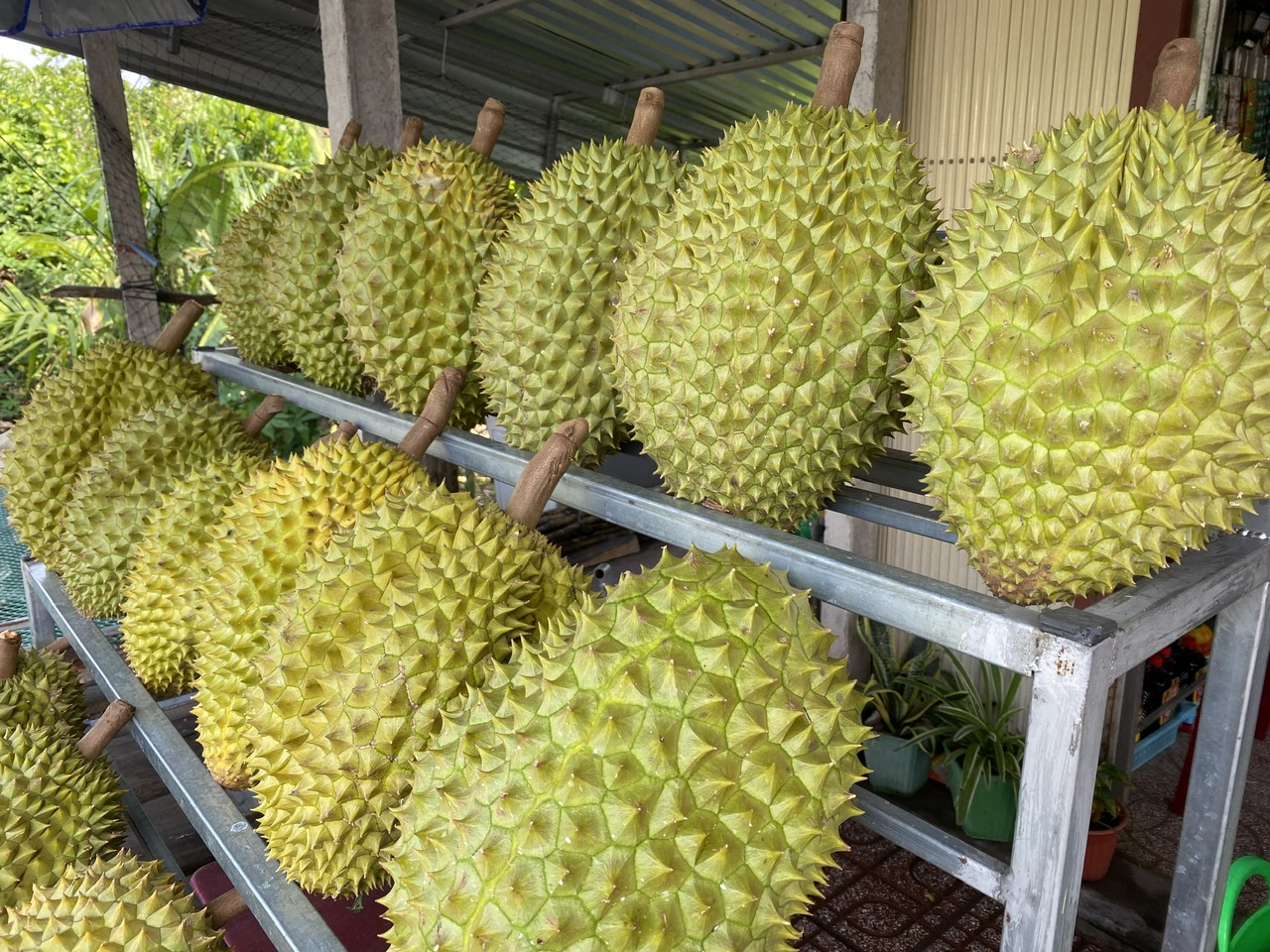
According to the Plant Protection Department (Ministry of Agriculture and Rural Development), WTO member countries, when exporting fresh fruits, must comply with the plant quarantine regulations of the SPS Agreement and the International Plant Protection Convention - IPPC. It requires fresh fruit products to have a plant quarantine certificate issued by a competent authority. In EU countries, they develop a set of regulations for each item, and they strictly control goods imported across borders. Violations will be warned and, depending on the severity, returned to the destination, destroyed, or suspended import. For China, which was considered easy-going in the past, there are now more strict barriers regarding plant quarantine, so cross-border exports are gradually limited. Currently, China has allowed the official import of 8 types of fresh fruits from Vietnam, including dragon fruit, mango, longan, rambutan, lychee, banana, jackfruit, and watermelon... with complete quarantine requirements. Due to the trend of countries raising plant quarantine barriers for food safety, it will make opening the fruit export market more difficult. Besides, we also lack in-depth and comprehensive research and forecasts on consumer needs and tastes in critical markets. Especially there is a lack of information about competitors. These are no small challenges for fruit exports in the long term.
Experts say that the world's demand for fruit is increasing, and Vietnam has the potential to boost exports of this product soon. The urgent issue today is to build an appropriate export market opening strategy, focusing on large markets with convenient transportation and products in which Vietnam has a competitive advantage (such as dragon fruit, longan, rambutan, grapefruit, mango...). Plan and develop concentrated fruit production areas for export associated with Production unit codes. In these areas, production will follow VietGAP and GlobalGAP standards, strictly complying with the importing country's requirements. At the same time, there is an investment policy for plant quarantine treatment technology and post-harvest preservation and deep processing technology to meet the needs of importing countries. Also, promote the connection between farmers and export businesses towards sustainable fruit production and export.
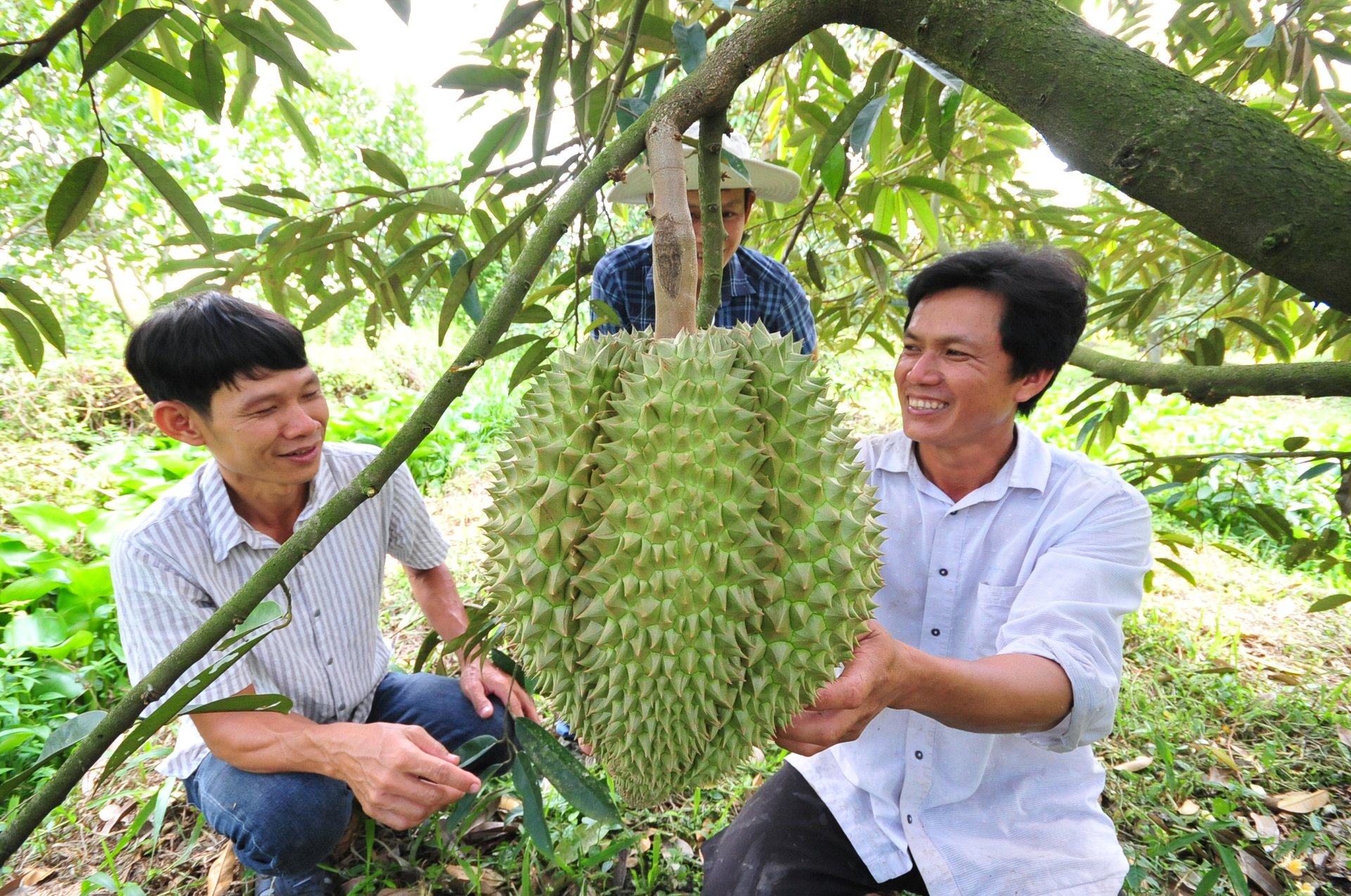
Content: Le Hoang Vu - Kieu Trang
Photo: Le Hoang Vu
Translated by: Huong Giang
Design: VAN


